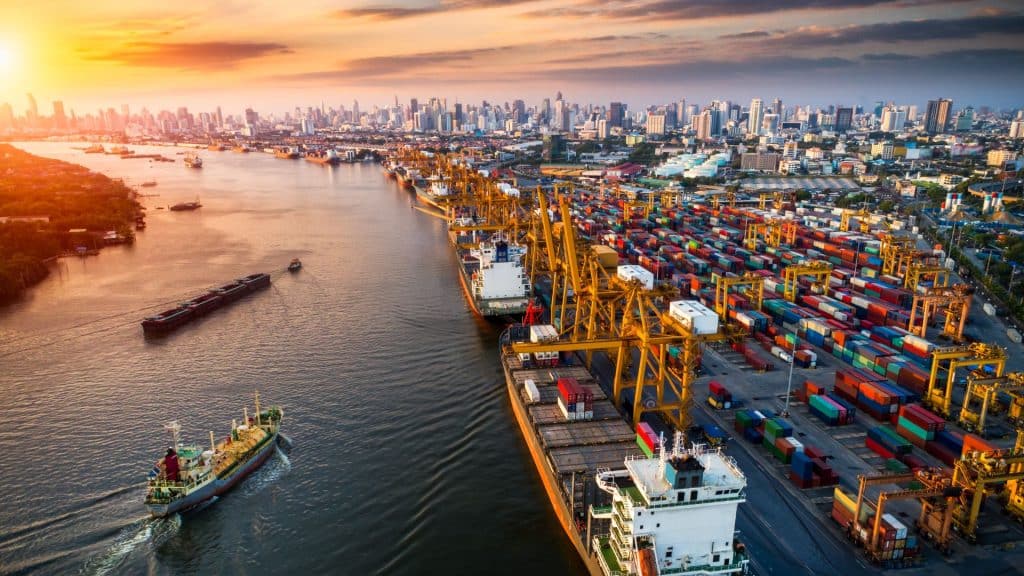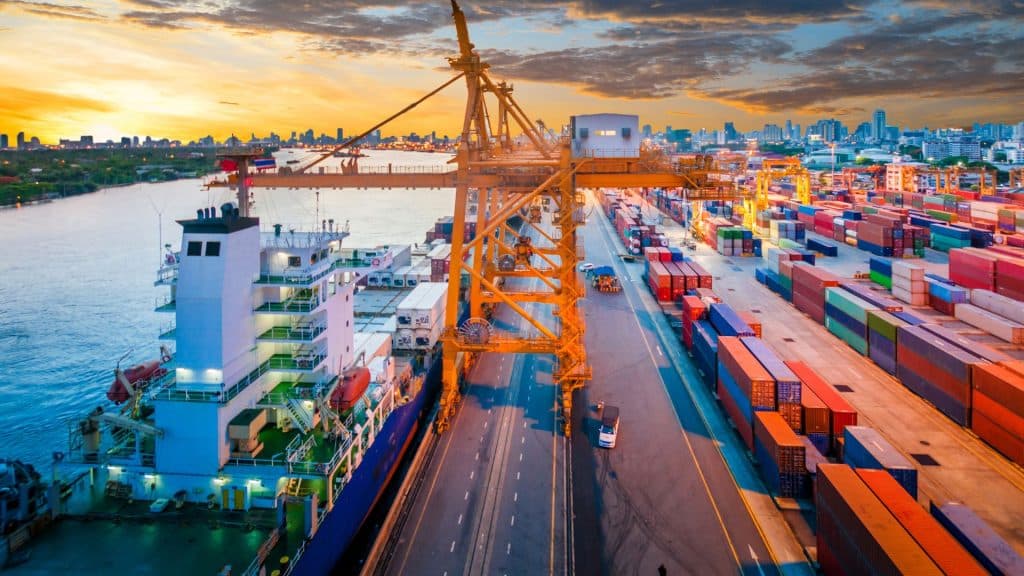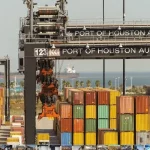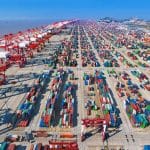PORT OF SAVANNAH CARGO VOLUMES HIT RECORD 5.9 MILLION TEUS IN 2022
The Port of Savannah, billed as the fastest growing container terminal in the U.S., handled a record 5.9 million TEUs in 2022 for an increase of 5% over 2021, the Georgia Ports Authority announced Tuesday. The Port of Savannah last year benefitted from an acceleration of the eastward shift of cargo volumes, due to West Coast port labour negotiations, that has been happening since the expansion of the Panama Canal in 2016
WEST COAST NORTH AMERICA VOLUMES STILL SHRINKING
North America West Coast (NAWC) volumes were stagnant during the usual peak season, then declined from September through November 2022 when compared with 2021 and when annualised and compared with 2019. The annualised figures compared to 2019 show a decline in volume growth from March 2022’s peak of 14.2%. The growth rate dipped into negative territory in July and then again in September, October and November 2022. The shift in container volumes between the North America coasts has been evident for some time and accelerated by extreme congestion on the West Coast during the pandemic. The ongoing threat of labour disruption on the West Cost further incentivises a shift Eastward.

HOW DID THE PORT OF LOS ANGELES GO FROM BOOM TO BUST?
A year ago this week, a record 109 container ships carrying US imports surrounded the twin ports of Los Angeles and Long Beach, California — a bottleneck so long that the payloads of all those metal boxes lined up end-to-end would’ve stretched from the Baja Peninsula to Vancouver. It was like taking 10 lanes of LA freeway traffic and squeezing them into five,” Port of Los Angeles. As of today, the queue is gone. So why did it take most of 2022 to clear the backlog of ocean freight and where are those containers now? The answers reflect the changing economic tide — from a pandemic recovery led by resilient consumers and fully stocked warehouses to a slowdown marked by inflation worries, deep discounting to clear inventories and post-lockdown demand shifting to services, such as travel, from goods. There were labour supply factors, too. Early in the pandemic port workers, like everyone else, were hit by Covid-19 infections and contact tracing. Now, West Coast dockworkers are locked in contract negotiations with shipping companies, creating uncertainty that is diverting imports to the Gulf and East coasts.

RESHORING U.S. SUPPLY CHAIN WILL BE LIMITED BY COSTS
A mass exodus out of East Asia seems unlikely for US manufacturers in 2023, with any decision to diversify supply chains away from the region dictated by costs, as well as logistics considerations, according to separate reports. Supply chain congestion and port infrastructure will likely limit how much manufacturers can actually change strategy this year. That’s the takeaway from a study by supply-chain data provider project44. Consider the US, which played whack-a-mole with its supply chain issues over the past two years. When Southern California port snarls required White House intervention in 2021, exporters sent their containers to the East Coast in 2022.This led to median container dwell times of 10.39 days for Charleston, and 8.85 days for Savannah, which was the highest among major ports globally, according to project44.Health of the economy will ultimately remain the leading issue on how supply chains pan out this year. A survey of over 2,600 industry professionals by logistics services platform Container Change said that 88% believe that inflation and recessionary fears would be the biggest factor impeding businesses in 2023.Chinese New Year holidays, as well as a build-up of new ships and equipment last year are likely to keep shipping rates low to start the year as supply outweighs demand, all while headwinds buffet the global economy.
HOW BIG ARE THE WORLD’S LARGEST OCEAN CONTAINER SHIPS?
The massive ship has a capacity of 24,004 twenty-foot equivalent units, just a little more than its slightly older sibling, the Ever Ace, launched in July 2021 and the former world record holder at 23,992 TEUs. The Ever A lot is more than 1,300 feet long and 203 feet wide. If you were to stack the Ever A lot vertically, it would be taller than the Empire State Building in New York City.




